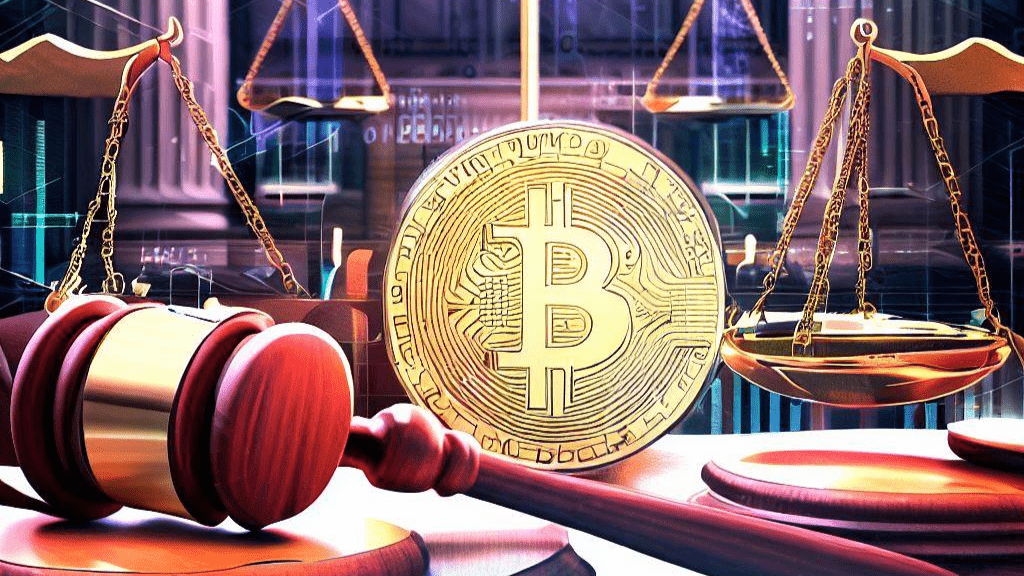
In the midst of shifting crypto regulation sentiment in the United States, John Deaton, the lawyer representing XRP holders, has once again raised concerns about Gary Gensler, the Chairman of the United States Securities and Exchange Commission (SEC). Deaton accuses Gensler of attempting to evade the law with his recent statements regarding how securities laws apply to tokens in the crypto industry.
In a video interview, Gensler discussed how securities laws are applicable to most tokens in the market. However, Deaton firmly asserts that these laws do not apply to these tokens, as demonstrated by the Howey test and exemplified in the recent Ripple ruling. According to Deaton, securities laws might only be relevant to the “offer and sale of tokens, including #Bitcoin (as they did in SEC v. Shavers in 2013).” He emphasizes that there should be no distinction in the type of asset, as long as the offering aligns with the prongs of the Howey test.
Deaton suggests that Gensler might be misleading the public with his stance, and he calls on the top securities regulator to “stop ignoring the law.” The question of whether securities laws apply to cryptocurrencies remains one of the most contentious topics in the digital currency ecosystem, with SEC executives and crypto leaders holding vastly different interpretations of the security status of these emerging asset classes.
These divergent views have led to lawsuits against prominent players in the industry, including Kraken, Coinbase, and Binance exchanges. While Judge Analisa Torres recently clarified that XRP itself is not a security in a ruling, the SEC appears dissatisfied, considering the possibility of an appeal. As the legal battles continue, the ultimate decision on the status of cryptocurrencies may end up at the Supreme Court level.
The outcome of these legal battles will significantly impact the future of the crypto industry, shaping the regulatory framework for digital assets in the United States. As both regulators and crypto leaders engage in heated debates over the application of securities laws, investors and market participants are closely monitoring the developments that will determine the fate of cryptocurrencies in the country.
The Shifting Crypto Regulation Landscape
The regulatory landscape for cryptocurrencies in the United States has been a topic of significant debate and uncertainty for several years. The dynamic and rapidly evolving nature of the crypto industry has presented challenges for regulators, leading to differing opinions on how existing securities laws should be applied to digital assets.
In recent times, there has been a heightened focus on regulatory clarity for cryptocurrencies. The SEC, under Chairman Gary Gensler’s leadership, has been actively examining and scrutinizing various aspects of the crypto market to determine whether certain tokens should be classified as securities.
Chairman Gensler’s statements on how securities laws apply to tokens have been a point of contention for some within the crypto community, including John Deaton, the lawyer representing XRP holders. Deaton strongly argues that the Howey test, which is commonly used to determine whether an asset is a security, should be the guiding principle in classifying cryptocurrencies.
The Howey test, established by the Supreme Court in 1946 in the case of SEC v. W.J. Howey Co., involves four prongs that must be met for an asset to be considered a security:
The asset must be an investment of money.
There must be an expectation of profits from the investment.
The investment of money must be in a common enterprise.
Any profit comes from the efforts of a promoter or third party.
Deaton contends that the Howey test should be applied consistently across all cryptocurrencies, regardless of their type or underlying technology. If an asset meets the criteria set forth in the Howey test, it should be considered a security and subject to relevant securities laws. On the other hand, if it does not meet these criteria, it should be classified as something other than a security.
The Ripple Case and Its Implications
The Ripple case has been one of the most closely watched legal battles in the crypto industry, as it directly addresses the question of whether XRP is a security. The SEC filed a lawsuit against Ripple Labs, the company behind XRP, in December 2020, alleging that the sale of XRP was an unregistered securities offering.
Ripple has vigorously contested the SEC’s claims, arguing that XRP is not a security and should not be subject to securities regulations. The company has emphasized that XRP is a digital asset and a medium of exchange used for cross-border payments, similar to Bitcoin and Ethereum.
In a recent ruling, Judge Analisa Torres stated that XRP itself is not a security, as it does not meet the criteria of an investment contract under the Howey test. However, the judge also mentioned that individual offers and sales of XRP may still be considered securities if they meet the Howey test criteria. This ruling was seen as a partial victory for Ripple and XRP holders, but it did not fully resolve the regulatory uncertainty surrounding XRP and other cryptocurrencies.
The SEC, dissatisfied with the ruling, is considering the possibility of an appeal. The outcome of the Ripple case and potential further legal actions could have far-reaching implications for the classification of cryptocurrencies as securities in the United States.
The Role of Regulatory Clarity
The lack of clear and consistent regulatory guidelines has been a significant challenge for the crypto industry in the United States. As the industry continues to grow and gain mainstream attention, the need for regulatory clarity becomes more pressing.
Investors, businesses, and innovators in the crypto space require clear rules and guidelines to operate within a compliant framework. Without regulatory clarity, there is a risk of stifling innovation, hindering capital formation, and creating a fragmented and uncertain market.
Regulatory clarity is also crucial for fostering investor confidence and protecting consumers. Clear rules and guidelines can help investors make informed decisions and avoid fraudulent or risky schemes. Moreover, regulatory clarity can provide a level playing field for all market participants, encouraging responsible growth and development of the crypto industry.
As regulatory agencies like the SEC continue to grapple with the challenges posed by cryptocurrencies, finding the right balance between innovation and investor protection remains a complex task. Striking the right balance will require ongoing engagement and collaboration between regulators, industry stakeholders, and legal experts.
The Potential Impact on the Crypto Industry
The outcome of the legal battles and regulatory decisions surrounding cryptocurrencies will significantly impact the future of the crypto industry in the United States. If cryptocurrencies are classified as securities, they would be subject to strict securities regulations, including registration requirements, reporting obligations, and investor protection measures.
Such a classification could lead to increased compliance costs for crypto projects, exchanges, and other market participants. It may also limit the ability of retail investors to access certain cryptocurrencies due to regulatory restrictions.
On the other hand, if cryptocurrencies are not classified as securities, they may have more room for innovation and growth. Crypto projects and exchanges would still be subject to relevant regulatory requirements, such as anti-money laundering (AML) and know-your-customer (KYC) regulations. However, they may not face the same level of scrutiny and restrictions as securities offerings.
Clear and consistent regulatory guidelines will also play a crucial role in attracting institutional investors to the crypto market. Institutional investors often seek regulatory certainty and compliance assurances before entering new markets. A well-defined regulatory framework can provide the confidence they need to invest in cryptocurrencies.
Conclusion
The question of whether securities laws apply to cryptocurrencies continues to be a contentious and complex issue in the United States. The recent statements made by SEC Chairman Gary Gensler and the ongoing legal battles, such as the Ripple case, highlight the need for regulatory clarity and a comprehensive framework that can accommodate the unique characteristics of digital assets.
As the crypto industry continues to evolve and mature, it is essential for regulators, industry stakeholders, and legal experts to work together to develop a regulatory framework that fosters innovation while safeguarding investors and consumers. Striking the right balance will require thoughtful consideration of the Howey test and other relevant legal principles to determine whether specific cryptocurrencies should be classified as securities.
In the end, a clear and well-defined regulatory framework will be instrumental in unlocking the full potential of cryptocurrencies and blockchain technology, driving the growth of the digital asset ecosystem, and ensuring that the United States remains at the forefront of the global crypto revolution.


Get the latest Crypto & Blockchain News in your inbox.